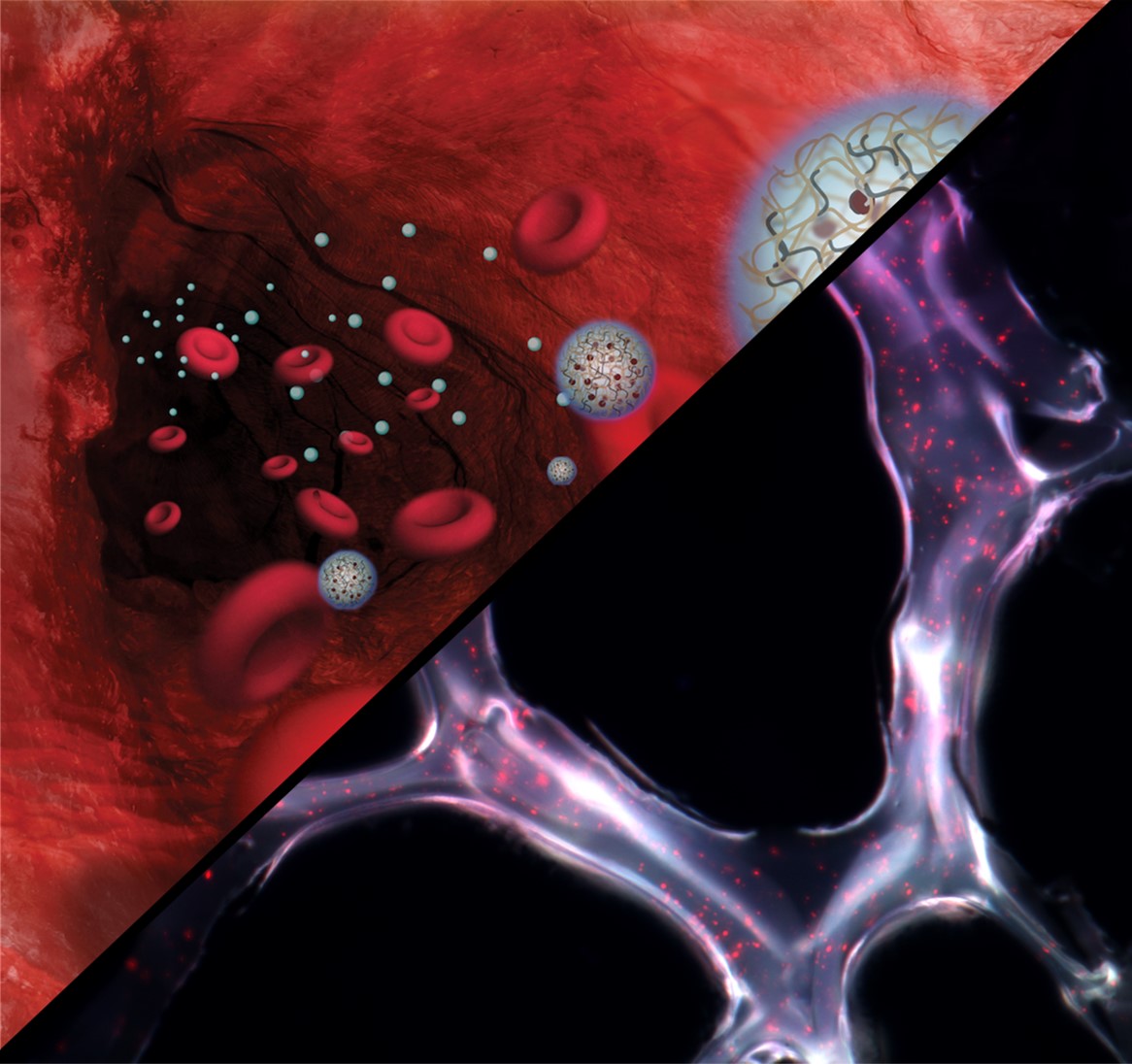

Please join us for a live webinar on the 4th November 15.00–16.00 at which Professor Axel Behrens (Cancer Research UK Convergence Science Centre Scientific Director) is pleased to host Dr Nazila Kamaly and Dr Nuria Oliva-Jorge.
In this series of webinars brought to you by the Cancer Research UK Convergence Science Centre at Imperial College London and The Institute of Cancer Research, London, researchers across the two organisations will discuss key challenges facing cancer research and opportunities for new convergence science approaches to address these. Join us to consider how novel approaches and technologies could shed light on unresolved problems in cancer biology, to innovate new ways to address challenges in cancer and bring pioneering treatments to cancer patients faster.
Dr Nazila Kamaly – Department of Chemistry, Imperial College London
‘Nanomedicines and their role in modern cancer therapy’
Nanoparticle enabled drug delivery and therapy is revolutionising the field of medicine, as we have witnessed recently with the solid lipid nanoparticle based Covid-19 mRNA vaccines. Since the last two decades, the application of nanotechnology in oncology has aimed to provide more effective and safer cancer treatment, with commonly used nanotherapies such as Doxil now on the market as ‘nanosimilars’. Considerable technological success has been achieved in this field though we have not seen a new paradigm shift in cancer therapy with nanomedicines. This is in part due to challenges stemming from the complexities and heterogeneity of tumour biology, an incomplete understanding of nano-bio interactions and complex chemistries, scale-up, manufacturing and controls required for clinical translation and commercialisation, which the field is actively addressing and will be discussed in this talk.
&
Dr Nuria Oliva-Jorge – Department of Bioengineering, Imperial College London
'Tumour-selective cancer nanotherapies'
In this talk, Dr. Oliva-Jorge will describe novel approaches being developed in her group to elicit tumour-selectivity of cancer therapeutics using nanotechnology. It is not uncommon for potent anti-cancer drugs to have dose-limiting toxicity, due to their unintended effects on healthy cells. Using rational nanoparticle design and engineering, we can enable selective nanoparticle uptake and/or drug release in cancer cells only, minimising this way the side effects on healthy cells.
About the speakers:
Dr Nazila Kamaly
Dr. Nazila Kamaly is a lecturer in the Department of Chemistry and nanomedicine expert. She uses bioinspired approaches to develop targeted multi-functional polymeric nanomedicines capable of changing their surface or core properties in response to local or up-regulated disease markers for stimuli-responsive and spatiotemporally controlled precise drug delivery. Her lab also develops biomimetic and biomicrofluidic models to better screen and understand nano-bio interactions at the cellular level.
Dr Nuria Oliva-Jorge
Dr. Nuria Oliva-Jorge is currently an Imperial College Research Fellow in the Department of Bioengineering. An organic chemist by training, Nuria received her PhD in Medical Engineering and Medical Physics from MIT in 2016. Her thesis focused on biomaterials combined with nanotechnology for the local treatment of breast cancer. In 2018, Nuria joined the Almquist Lab at Imperial College London as a postdoctoral fellow to work on nanotechnologies for wound healing and tissue regeneration. Her independent group works at the intersection of biomaterials, biology and medicine to develop novel, smart medical technologies to tackle complex human diseases.
To receive information about how to access this event please email icr-imperial-convergence.centre@imperial.ac.uk
Please note: This webinar is exclusively available only to colleagues across the Institute of Cancer Research, Imperial College London, the Royal Marsden Hospital and Imperial College Healthcare.
Image Credits: Kamaly & Oliva-Jorge